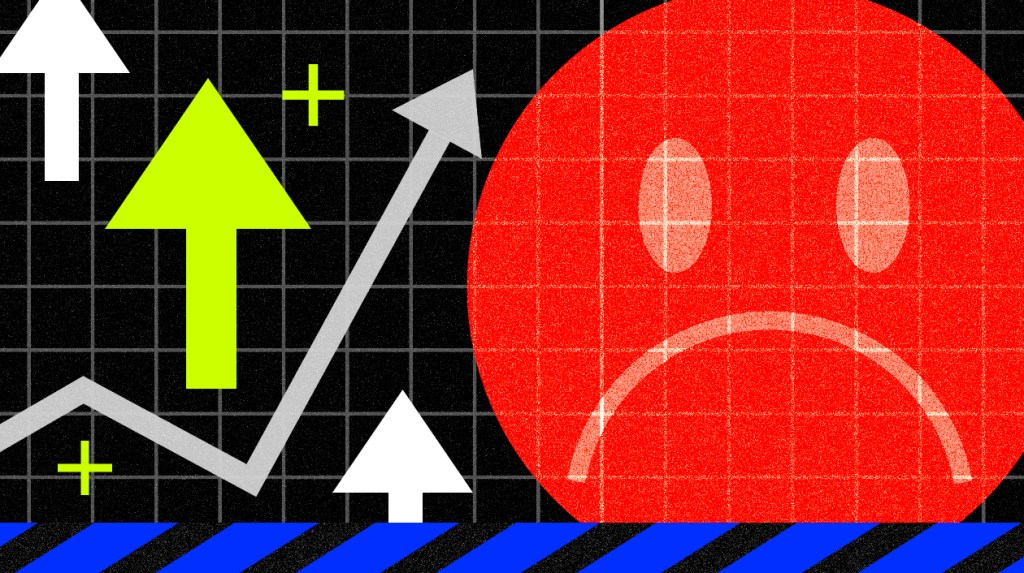By some measures, recorded music has never been better. U.S. sales rose 8% in 2023 to a record high of $17.1 billion. Streaming continues to grow worldwide. and revenue and operating income are rising at the big three and many smaller companies as well. The subscription streaming model is attractively predictable, and the explosion of other forms of online media, from video games to virtual exercise programs, creates plenty of opportunities for growth.
By other measures, the industry is in dire straits. The flood of new music pouring into streaming services—both legal and illegal—is shrinking the pool of royalties for professional musicians. (This, and some other things, may be good for some players, but it seems to be bad for business.) While the comparisons are complicated, it seems harder than ever to break out new acts. Underneath all of this is the part of the iceberg that most people don't see: The deals that labels sign with acts are generally less lucrative because artists have more power than ever before.
The numbers say it's the best season. Layoffs at Universal Music Group and Warner Music Group say otherwise. And even though the recorded music business is in no real danger—the only question is how fast it will grow—it's hard to escape the idea that something is just pretending.
Welcome to the music business version of the “vibecession” affecting the US economy as a whole. The term, coined in June 2022 by the financial analyst Kyla Scanlondescribes the apparent disconnect between positive economic indicators and negative public perceptions. Put simply, if the numbers look so good, why are things so bad?
Outside of the music industry, most of the financial news is good, or at least good by the standards of dismal science. Inflation is coming down and the economy seems to be growing again. The problem, from an industry perspective, is that people i just don't feel it. One example: Concerns about job losses are high at a time when the level of layoffs is low, according to Marketplace. The article compares the current situation to a doctor talking to a healthy patient who thinks he is sick. There are explanations for this: Perhaps our minds are still adjusting to higher prices, which continue to rise even price of falling inflation, or perhaps troubling political news just makes more of an impression than economic indicators.
This could be more than just a sentiment, as a Boston economist might say, as people and companies who believe the economy is going to decline may cut back on spending and, inadvertently, help make it happen. Although the music industry is much harder to measure, the same could happen there. The pessimism that has already led to layoffs and restructuring means there will be fewer A&R executives signing fewer acts and then spending less money on marketing and promotion. This may be necessary. But it is unlikely to help.
What kills the vibe in music? In part, expectations have changed. Streaming's boom phase is ending, but the major music companies, especially UMG and WMG, are under some pressure to grow faster than the overall business. Subscription streaming is going from the savior of the music business to another new format that boosts some genres of music at the expense of others. There aren't many new stars – one of the big hip-hop stories this year has been the feud between Drake and Kendrick Lamar. (This is as much the winter of our discontent as it is the season of diss content.) And new albums from established stars like Ariana Grande and Dua Lipa are getting off to a slow start (though it's hard to know what that means in a business built on streaming).
There may also be a sense, both in the music industry and the economy as a whole, that the foundations are not as solid as they seem. There is more talk of quick fixes, both in the overall economy (Blockchain!) and in the music industry (NFTs!). But there's little effort to get to the heart of the issues: The economy seems increasingly skewed toward funding, and streaming services' proportional distribution of royalties rewards viral sensations in a way that can make it harder for different types of artists to build careers.
Meanwhile, the numbers continue to climb. The stock market has soared, undeterred by COVID, inflation and conflict in the Middle East — but that can't last forever. The recorded music business continues to grow, too, and almost certainly will continue to do so — just maybe not in the way we expected. In recent years, record labels have spent fortunes signing big-money viral superstars – but how many of them will be around in a decade? Meanwhile, popular tastes are harder than ever to predict. Two years ago, when it looked like the future belonged to hip-hop, could anyone have predicted such a big comeback in country? Giving people what they want is a good strategy — but only if they keep wanting it.
It's a good time to toast the good times — but it's tempting to ask for a strong drink, too. Both the music industry and the wider economy continue to climb over problems to reach new heights. And they're great places to be — until you realize it's all downhill from there.



